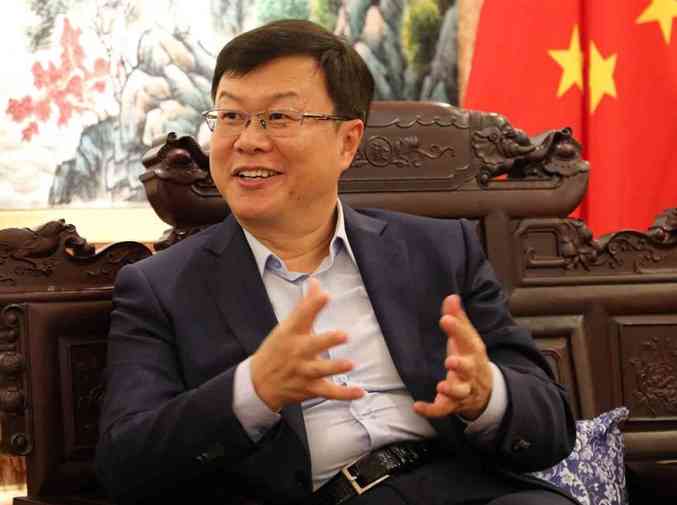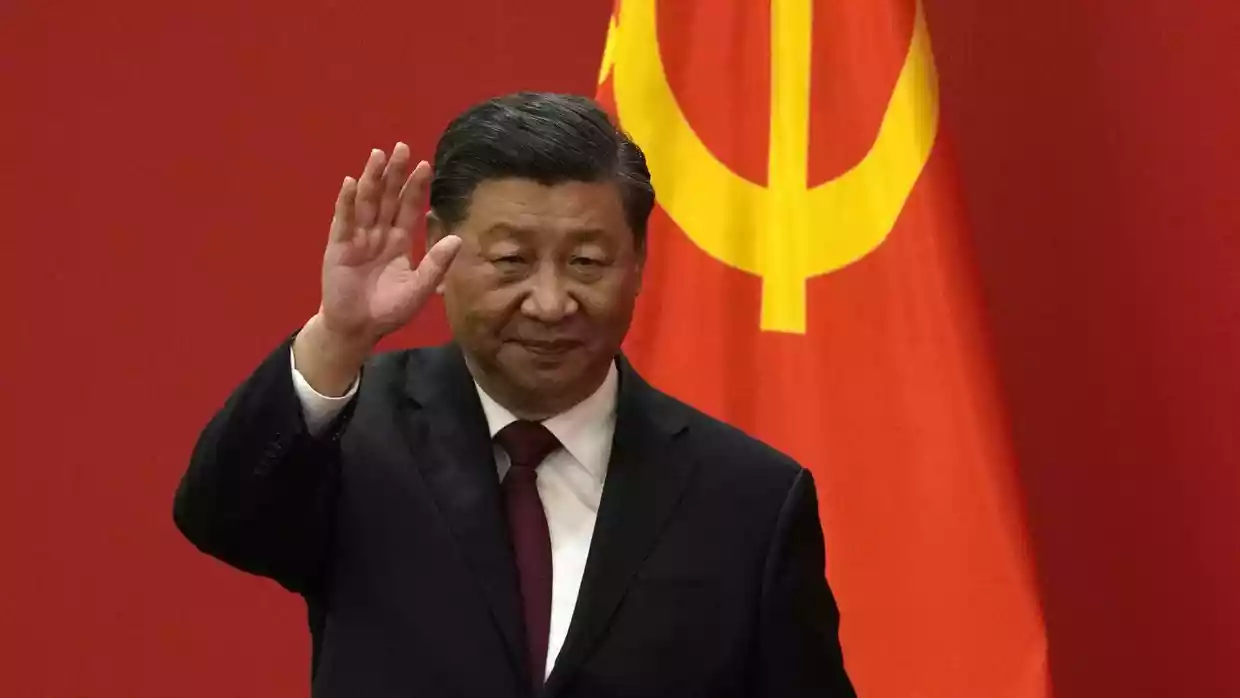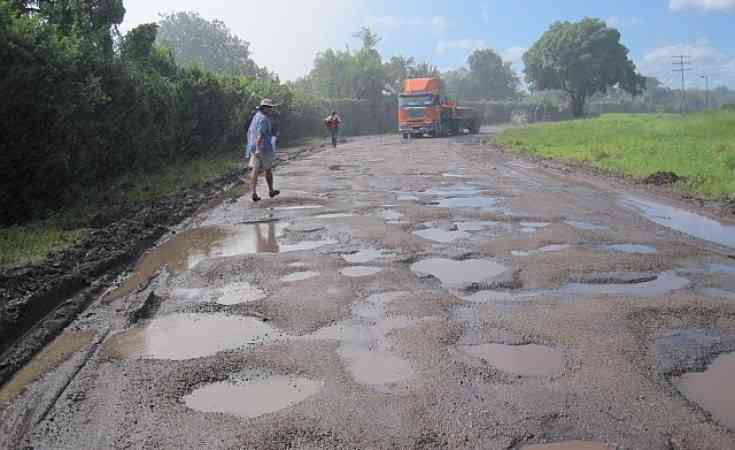
China’s ambassador to Zimbabwe Zhou Ding was the guest of honour at the 2024–25 National Journalism and Media Awards held in Harare last Thursday. We publish Zhou’s full speech below, which focused on Zimbabwe’s relations with China.
It is a true honour to join you at this prestigious ceremony for the 2024–2025 National Journalism and Media Awards.
Let me begin by extending my warmest congratulations to the Zimbabwe Union of Journalists and to all the award recipients.
Your dedication continues to illuminate Zimbabwe’s media landscape. Thank you as well for your kind invitation and the opportunity to address such a distinguished gathering tonight.
In the two years and four months since I arrived in Harare, I have had the privilege of meeting many journalists and media professionals, conducting interviews, delivering speeches, and engaging with people across social media.
What continues to inspire me is that the majority of Zimbabwean people, media outlets, and media practitioners care deeply about facts and truth—and stand firm against the toxic narratives that seek to cloud judgment and tear communities apart.
In May this year, at the launch of Zimbabwe’s National Media Policy at State House in Harare, His Excellency President ED Mnangagwa stated that the media must evolve with the times, serving as the symbolic ‘eye’ and ‘mirror’ of society—providing an honest, grounded reflection of our realities.
Indeed, Zimbabwe is committed to ensuring its citizens have access to factual, verified, and reliable information—a pillar that upholds the strength of your nation’s democracy.
- Mavhunga puts DeMbare into Chibuku quarterfinals
- Bulls to charge into Zimbabwe gold stocks
- Ndiraya concerned as goals dry up
- Letters: How solar power is transforming African farms
Keep Reading
Just last week, during the Zanu-PF National Conference in Mutare, His Excellency reiterated that Zimbabwe will combat misinformation and disinformation, emphasising that “Zimbabwe is not governed on social media.”
These words resonate deeply.
As we navigate this digital era, it is more imperative than ever to ensure that a country is run by the rule of law.
Social media is a space for sharing information and ideas—not for passing verdicts, inciting hatred, racism, or xenophobia.
As seasoned media practitioners, I trust you understand this better than I do: when narratives are weaponized, truth becomes the first casualty.
Tonight, I stand before you not only as China’s Ambassador to Zimbabwe but also as a friend to journalists and media professionals.
It is in this spirit of friendship that I wish to speak plainly about a narrative that concerns us all—the story of China–Zimbabwe relations, and how it is sometimes distorted in the court of public opinion.
A Zimbabwean friend once told me: “Countries that face no criticism are those doing nothing.”
I don’t disagree with that. However, as we welcome constructive criticism, we do hope to be spared the harm of malicious lies that undermine the friendship and erode the bonds of trust between our peoples.
To understand the nature of China–Zimbabwe relations, let me first try to paint a clear picture of China.
As China’s ambassador, I’ve always found it a challenging task to portray my country—its past, its present, its soul.
How could it not be? With 5,000 years of unbroken civilization, 1.4 billion people from 56 vibrant ethnic groups, and the world’s second-largest economy, China’s complexity defies simplistic explanation.
Geopolitically, China navigates one of the world’s most complex strategic landscapes.
As a major country spanning over 9.6 million square kilometres, we share land borders with 14 neighbouring nations and maritime boundaries with six more—while being surrounded by more than 200 foreign military bases.
This stark reality demands not only robust development strategies but also a principled, consistent foreign policy.
Economically, China’s journey has been marked by historic achievements—most notably, lifting over 800 million people out of poverty within just a few decades, eradicating absolute poverty on an unprecedented scale.
Yet we continue to face significant challenges, including the urban–rural divide and uneven regional development.
While you may be impressed by China’s modern infrastructure and cutting-edge technologies, please bear in mind that, in line with the UN standards and international norms, China is still a developing country—and development remains our unwavering priority.
Guided by a people-cantered development philosophy, China has blazed a distinctive path to modernization—one that safeguards our sovereignty, honours our heritage, and stays true to our realities.
While pursuing innovation-driven economic growth, we are steadfastly advancing common prosperity, environmental protection, and good governance with zero tolerance for corruption.
Earlier today, the Fourth Plenary Session of the 20th central committee of the Communist Party of China was just concluded in Beijing.
The CPC’s recommendations were adopted for formulating China’s 15th five-year plan, which will outline China’s development blueprint for the next five years and set clear priorities.
Like all our strategies, this plan is crafted not only to advance our own progress but also to create more cooperation opportunities for partners like Zimbabwe—whether through the Belt and Road Initiative (BRI) or the Forum on China-Africa Cooperation (FOCAC).
Diplomatically, China adheres to an independent foreign policy of peace, centred on the vision of building a community with a shared future for mankind.
We uphold a rules-based international order anchored in the purposes and principles of the UN Charter, and we embrace inclusive and mutually beneficial economic globalisation as well as equal and orderly multipolarisation—principles that echo the shared aspirations of developing countries everywhere, including our Zimbabwean brothers and sisters.
In response to global challenges, H.E. Chinese President Xi Jinping has put forward four major global initiatives: the Global Development Initiative, the Global Security Initiative, the Global Civilization Initiative, and the Global Governance Initiative.
These initiatives offer practical, actionable Chinese solutions to shared global challenges and closely align with Africa’s own development priorities.
I have spoken about China and its strategies and policies tonight because they are deeply relevant here.
Based on the principles and policies we advocate, we have built a solid, time-tested partnership with Zimbabwe over the years.
Founded on shared values, common interests, and a commitment to win-win outcomes, our partnership now spans nearly every sector and has contributed tremendously to Zimbabwe’s economic and social progress and the well-being of its people.
Yet, while this profound friendship is widely recognized and cherished, we have also witnessed waves of misconceptions—and at times, systematic smears—against our precious partnership.
Across social media and some segments of the press, a troubling narrative persists: one shaped not by facts, but by bias; not by fairness, but by preconceived prejudices.
These voices may not represent the majority, but they are loud enough to mislead the public.
Let me address three of the most common fallacies head-on.
First, the baseless label of so-called “neo-colonialism.” Some claim China is looting Zimbabwe’s resources, that Chinese investors are neo-colonialists, and that our investments only benefit elites in this country.
These allegations ignore a basic fact: Chinese investments are here because Zimbabwe is open for business, and Chinese companies operate in accordance with Zimbabwean laws—creating jobs and paying taxes.
Colonialists never arrive by invitation, nor do they abide by local laws—they impose their own rules to serve their own interests.
This is a stark contrast to China’s cooperative approach.
Second, the misleading claim of a “debt trap.” This idea inverts reality.
A “trap” implies deception and coercion, yet every loan China has provided was initiated by the Zimbabwean government, negotiated through transparent processes, and directed toward productive projects that benefit this country’s long-term development—such as the Hwange 7&8 power units and the upgrade of Robert Mugabe International Airport.
Consider this crucial fact: Zimbabwe’s debt to China accounts for just 16% of its total external debt.
If China’s loans were a “trap”, what should we make of the 84% debt owed to other creditors?
This narrative isn’t about finance—it is meant to discredit Zimbabwe’s sovereign right to choose its partners.
Third, allegations of labor abuse and environmental damage. Yes, there have been environmental and labour issues related to Chinese mining companies.
However, according to the data from the Ministry of Public Service, Labour and Social Welfare, labour disputes involving Chinese firms accounted for 7.5% of total cases last year, and the vast majority were resolved through dialogue.
Wages at Chinese-invested factories are significantly higher than the industry average.
The question is, do those individual cases reflect the broader picture of Chinese investment in the mining sector, even the whole Chinese business operations?
Should they overshadow and undermine the efforts of the majority of Chinese companies creating hundreds of thousands of jobs and building hundreds of corporate social responsibility projects in Zimbabwe?











